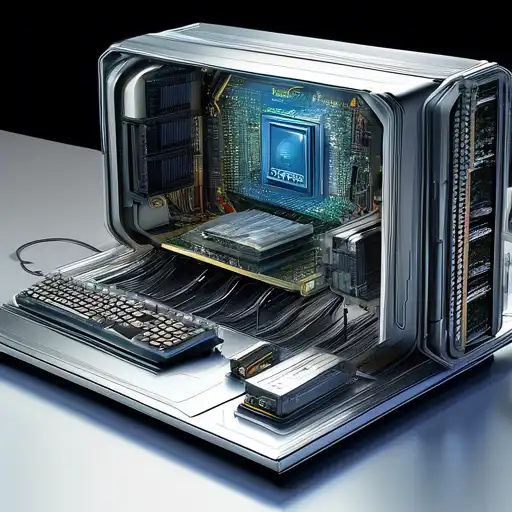The Evolution of Computer Hardware
As we delve into the future of computer hardware design, it's essential to understand how far we've come. From the bulky, room-sized computers of the mid-20th century to the sleek, powerful devices we use today, the evolution of computer hardware has been nothing short of revolutionary. The next generation of hardware promises even greater advancements, with innovations aimed at enhancing performance, efficiency, and sustainability.
Key Trends in Future Hardware Design
The future of computer hardware is being shaped by several key trends. These include the rise of quantum computing, the integration of artificial intelligence in hardware design, and the push towards more sustainable and energy-efficient components. Each of these trends is set to redefine what's possible in computing, offering unprecedented speed and capabilities.
- Quantum Computing: Quantum computers, leveraging the principles of quantum mechanics, promise to solve complex problems in seconds that would take traditional computers millennia.
- AI in Design: Artificial intelligence is increasingly being used to optimize hardware design, leading to more efficient and powerful components.
- Sustainability: With the growing emphasis on environmental responsibility, future hardware designs are focusing on reducing energy consumption and utilizing recyclable materials.
Challenges and Opportunities
While the future of computer hardware design is bright, it's not without its challenges. Issues such as heat dissipation, energy consumption, and the physical limits of silicon-based components pose significant hurdles. However, these challenges also present opportunities for innovation, driving the development of new materials and cooling technologies.
For instance, the exploration of graphene and other two-dimensional materials offers the potential for faster, more efficient transistors. Similarly, advancements in liquid cooling systems and passive cooling techniques are addressing the critical issue of heat management in compact devices.
Preparing for the Future
As we stand on the brink of these transformative changes, it's crucial for professionals and enthusiasts alike to stay informed and adaptable. Engaging with communities, attending conferences, and continuous learning are key to keeping pace with the rapid evolution of computer hardware.
Moreover, the integration of software and hardware is becoming increasingly seamless, highlighting the importance of a holistic approach to technology. The future of computer hardware design is not just about the components themselves but how they interact with software to create more intuitive and powerful computing experiences.
In conclusion, the future of computer hardware design is poised for groundbreaking advancements. With the convergence of quantum computing, AI, and sustainability efforts, the next generation of hardware will unlock new possibilities across all sectors of technology. The journey ahead is as exciting as it is challenging, and it's up to us to shape this future responsibly and innovatively.
